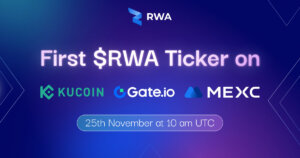 Gary Gensler’s SEC threatened with forced compliance over alleged obstruction by House committee
Gary Gensler’s SEC threatened with forced compliance over alleged obstruction by House committee Gary Gensler’s SEC threatened with forced compliance over alleged obstruction by House committee
Compulsory process threat looms over SEC chair Gensler in intensifying oversight dispute with House committee.

SEC.gov. Remixed by CryptoSlate
SEC Chair Gary Gensler faces threats of compulsory process if the agency does not comply with oversight requests from the House Committee on Oversight and Accountability by Oct. 19, Chairman James Comer warned in a letter accusing the SEC of obstruction on Oct. 12.
Chairman Comer demanded full cooperation and threatened forced compliance if the SEC does not provide all requested documents. While the letter is not directly related to Bitcoin or other digital assets, it does align with the general industry consensus of Gary Gensler’s time in power.
Chairman Comer asserts the SEC has “obstructed and continue[s] to obstruct congressional oversight” by not providing the information requested beginning June 5 on the SEC’s participation in developing “European social engineering initiatives disguised as disclosure and due diligence directives.” The letter states the SEC has not produced documents “substantively responsive” to the Committee’s inquiries.
Chairman Comer directly accused the SEC of “delaying, misleading, and blocking access to the records the Committee” has requested for oversight purposes. He argues this obstruction contradicts the SEC’s public commitment to enforcement through transparency and disclosure requirements.
The letter alleges the SEC has incorrectly justified withholding information by citing Section 24 of the Securities Exchange Act, which prohibits releasing non-public data without Commission authorization. However, Chairman Comer states this “rationale contradicted statute,” specifically Section 24(g), which explicitly states the SEC cannot “withhold information from the Congress.”
Chairman Comer concluded the letter by demanding the SEC provide fully responsive documents by Oct. 19, stating, “I expect nothing less than full cooperation with our inquiry.” Otherwise, he warned the Committee would consider a compulsory process “to gain compliance.”
The letter signifies an escalation in the oversight dispute between the House Committee and the SEC. While the SEC maintains its duty to protect confidential information, Chairman Comer asserts the Committee’s Constitutional authority to conduct oversight of Executive Branch agencies.
The outcome of this political conflict may establish a precedent on the acceptable limits of congressional investigations versus executive privilege, which may become essential to certain digital asset-related decisions coming down the line.



 Farside Investors
Farside Investors 


 CoinGlass
CoinGlass 























































































